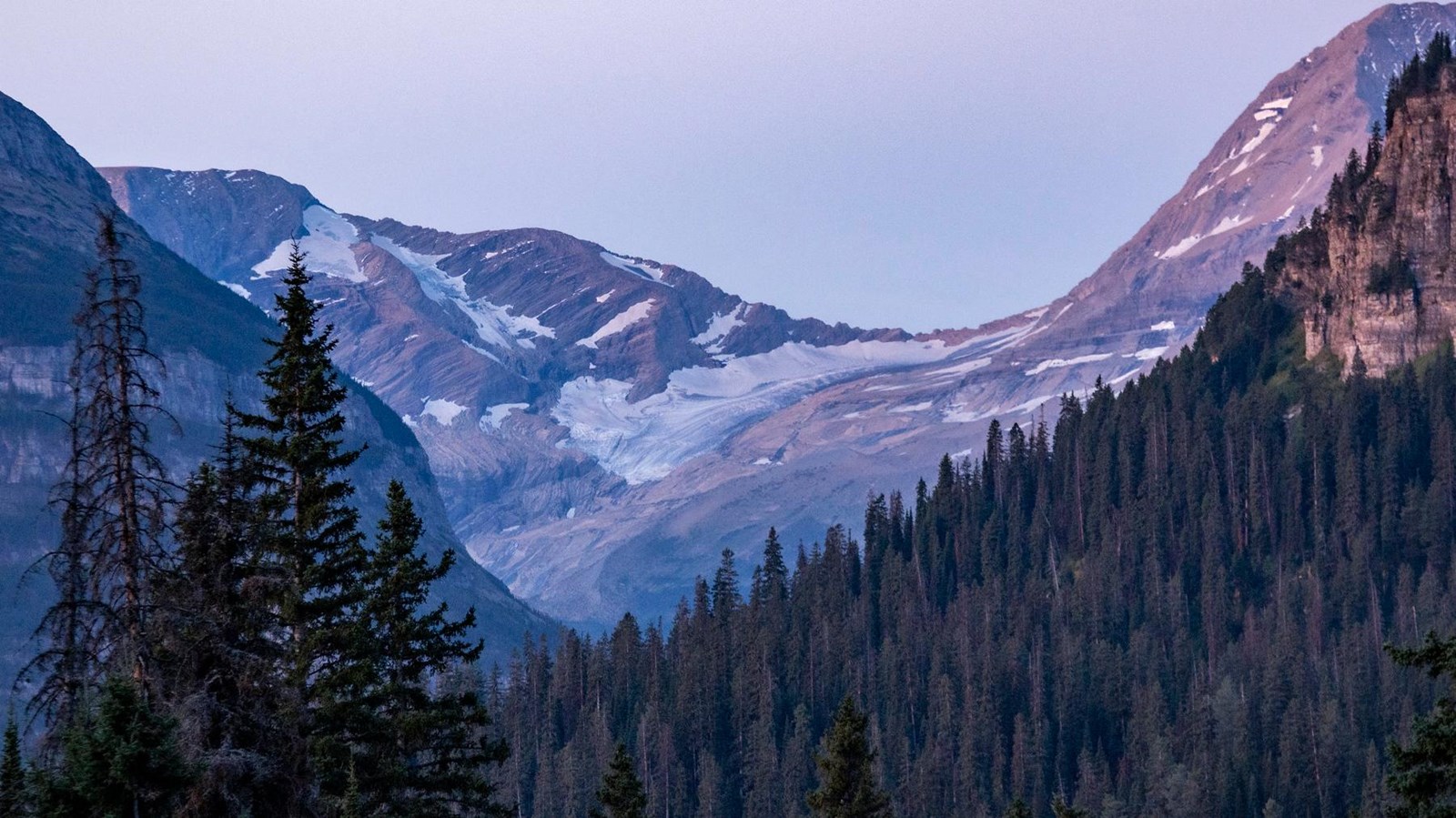Last updated: October 10, 2024
Place
Jackson Glacier Overlook: Recent Mountain Glaciers

NPS photo.
Quick Facts
Amenities
4 listed
Bus/Shuttle Stop, Parking - Auto, Scenic View/Photo Spot, Trailhead
Jackson Glacier Overlook gives an uninterrupted view (weather permitting) of one of the park’s namesakes. Nestled in the saddle between Mount Jackson and Blackfoot Mountain, Jackson Glacier is an example of a mountain glacier at work.
Since a glacier is constantly moving, mountain glaciers sculpt mountains by eroding the landscape as they move downslope. By picking up and depositing pieces of rock as they move, glaciers can leave quite a mark on the land.
Jackson Glacier is nestled high within a cirque left behind by larger glaciers that flowed down these valleys during the last Ice Age. A cirque is a round, steep-sided bowl carved by the head of a glacier—it looks a little like an ice cream scoop has carved a chunk out of a mountain, leaving behind a rounded amphitheater. If you’re continuing your drive over Going-to-the-Sun Road, another classic view of a cirque can be seen at Bird Woman Falls overlook, where the falls flows out of a cirque below Oberlin Mountain.
U-shaped valleys, hanging valleys, arêtes, horns, moraines, paternoster lakes, cirques, and tarns are all evidence of a glaciated landscape. Although the glaciers that remain today aren't as colossal as the ones from the ice age, they contribute to changes in the park that will continue as time goes on.
Since a glacier is constantly moving, mountain glaciers sculpt mountains by eroding the landscape as they move downslope. By picking up and depositing pieces of rock as they move, glaciers can leave quite a mark on the land.
Jackson Glacier is nestled high within a cirque left behind by larger glaciers that flowed down these valleys during the last Ice Age. A cirque is a round, steep-sided bowl carved by the head of a glacier—it looks a little like an ice cream scoop has carved a chunk out of a mountain, leaving behind a rounded amphitheater. If you’re continuing your drive over Going-to-the-Sun Road, another classic view of a cirque can be seen at Bird Woman Falls overlook, where the falls flows out of a cirque below Oberlin Mountain.
U-shaped valleys, hanging valleys, arêtes, horns, moraines, paternoster lakes, cirques, and tarns are all evidence of a glaciated landscape. Although the glaciers that remain today aren't as colossal as the ones from the ice age, they contribute to changes in the park that will continue as time goes on.
